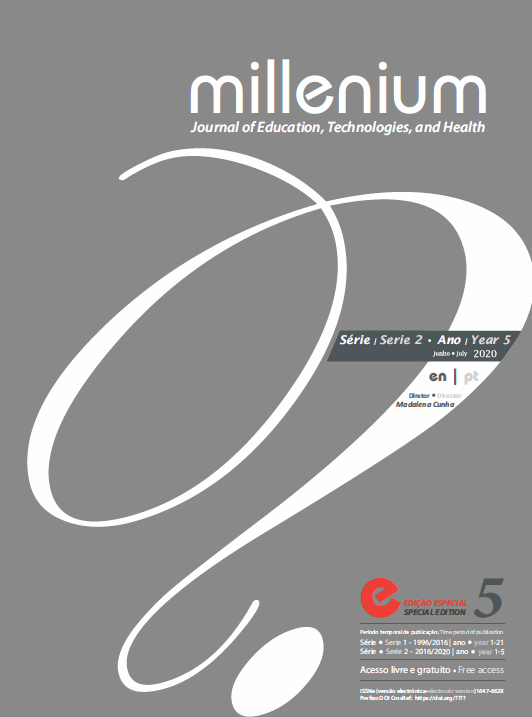Health education experiences with psychoactive substance users
DOI:
https://doi.org/10.29352/mill0205e.08.00306Keywords:
health education, mental health, nursingAbstract
Introduction: Popular health education consists of a political-pedagogical praxis that aims at the construction of unconventional educational processes through the valorization of the experiences and knowledge of the community.
Objectives: To describe the experience of conducting a health education group, targeting consumers with problematic drug use.
Methods: Descriptive study, with a qualitative approach, of the experience report type, carried out in a Psychosocial Care Center - Alcohol and Drugs, located in regional II of the city of Fortaleza, in the state of Ceará-Brazil. The period of performance of the activities took place during the month of March 2019. Eight people participated in the study, selected for convenience. The group education / investigation procedures included four (4) moments: the first presentation, the second moment of problematization on the chosen theme. The third moment, called brainstorming, promotes new reflections, both through mediators and participants. The fourth step is to evaluate the proposed activity and choose the next topic.
Results: The topics covered included: concept of health, using representations through paintings, a set of myths about Sexually Transmitted Infections (STIs) and the celebration of International Women’s Day, through the exhibition of a documentary. Active methodologies provide a greater degree of participation and autonomy, favoring learning.
Conclusions: Health education, by adopting active and effective methodologies, promotes cognitive, psychosocial and interpersonal development and the modification of attitudes and behaviors, which are appropriate to promote and/or maintain health.
Downloads
References
Brasil, Ministério da Saúde, Secretaria de Gestão Estratégica e Participativa, Comitê Nacional de Educação Popular em Saúde. (2012). Política nacional de educação popular em saúde. Brasília: Ministério da Saúde.
Brasil, Ministério da Saúde, Secretaria de Gestão Estratégica e Participativa, Departamento de Apoio à Gestão Participativa. (2014). II Caderno de educação popular em saúde. Brasília: Ministério da Saúde.
Brasil, Ministério da Saúde, Secretaria de Atenção à Saúde, Departamento de Ações Programáticas Estratégicas. (2015). Saúde Mental. Brasília: Ministério da Saúde. Freire, P. (2003). Pedagogia da autonomia: Saberes necessários à prática educativa (28ª ed.). São Paulo: Paz e Terra.
Freire, P. (2008). Educação e mudança (31ª ed.). Rio de Janeiro: Paz e Terra.
Pulga, V. L. (2013). Contribuições do movimento de mulheres camponesas para a formação em saúde. Traballho, Educação e Saúde, 11(3), 573-590.
Saboga-Nunes, L., Freitas, O. S., & Cunha, M. (2016). Renasceres®: Um modelo para a construção da cidadania em saúde através da literacia para a saúde. Servir, 59(1), 7-15 Silva, K., Matos, J., & França, B. (2017). A construção da educação permanente no processo de trabalho em saúde no Estado de Minas Gerais, Brasil. Escola Anna Nery, 21(4), 1-8.
Downloads
Published
How to Cite
Issue
Section
License
Copyright (c) 2020 Millenium - Journal of Education, Technologies, and Health

This work is licensed under a Creative Commons Attribution 4.0 International License.
Authors who submit proposals for this journal agree to the following terms:
a) Articles are published under the Licença Creative Commons (CC BY 4.0), in full open-access, without any cost or fees of any kind to the author or the reader;
b) The authors retain copyright and grant the journal right of first publication, allowing the free sharing of work, provided it is correctly attributed the authorship and initial publication in this journal;
c) The authors are permitted to take on additional contracts separately for non-exclusive distribution of the version of the work published in this journal (eg, post it to an institutional repository or as a book), with an acknowledgment of its initial publication in this journal;
d) Authors are permitted and encouraged to publish and distribute their work online (eg, in institutional repositories or on their website) as it can lead to productive exchanges, as well as increase the impact and citation of published work
Documents required for submission
Article template (Editable format)





